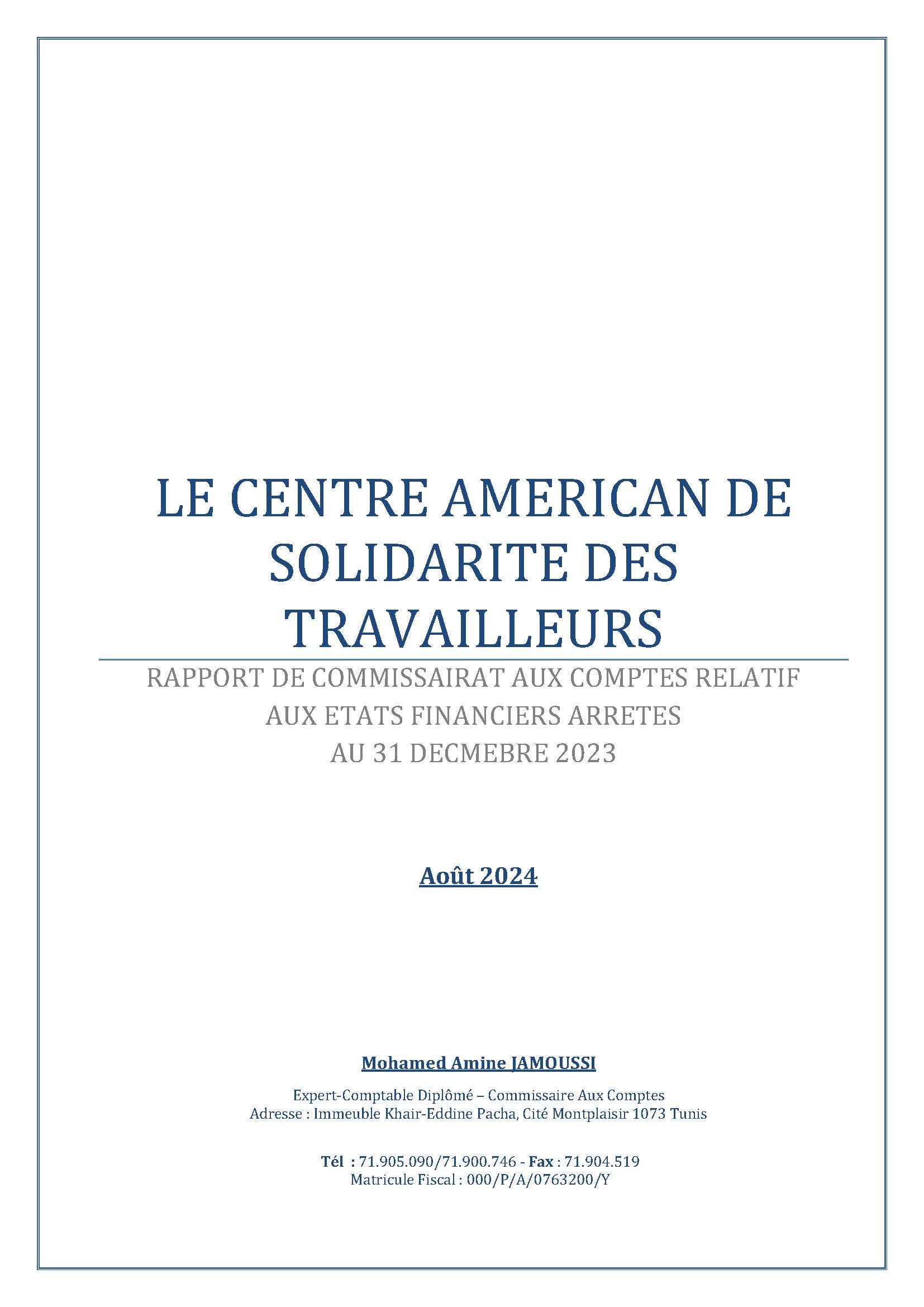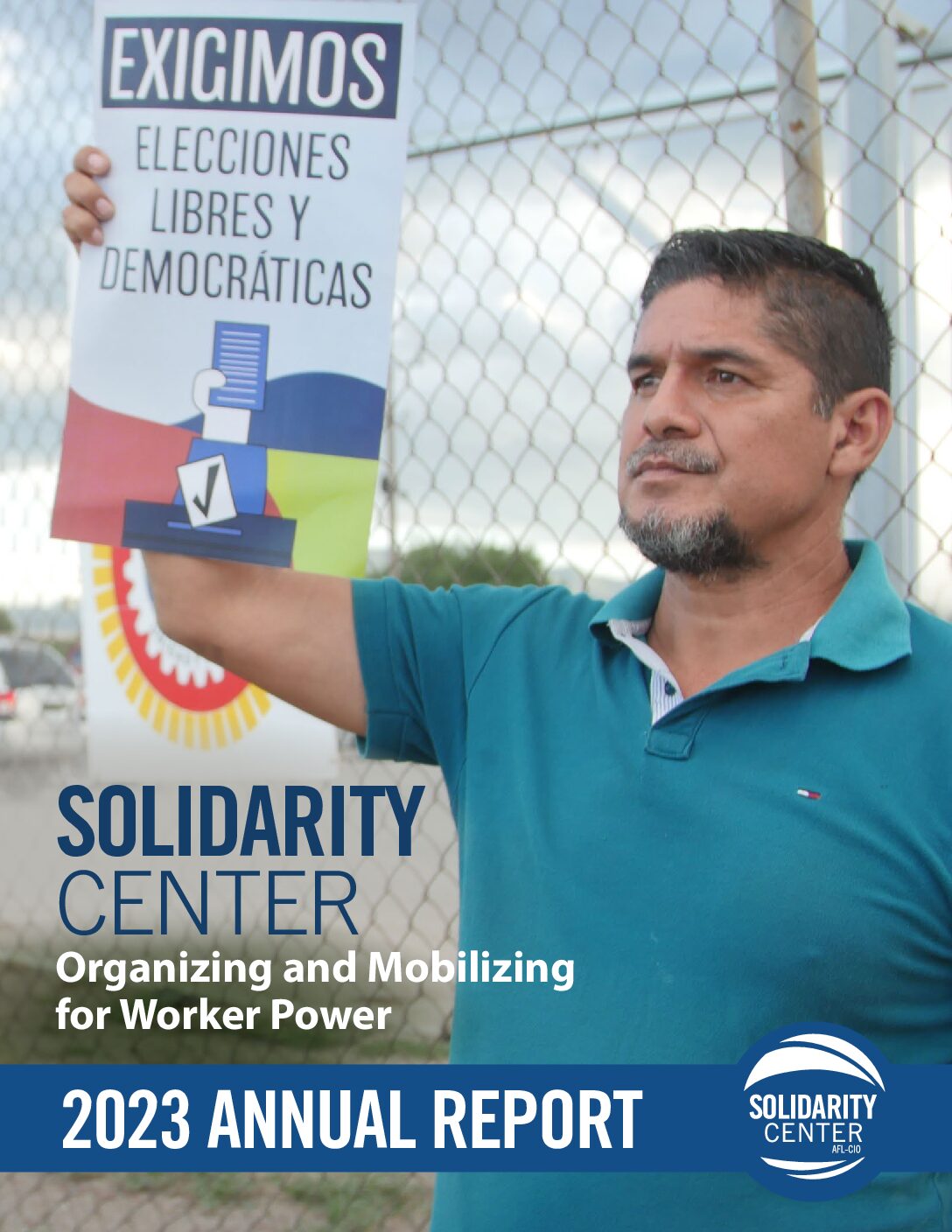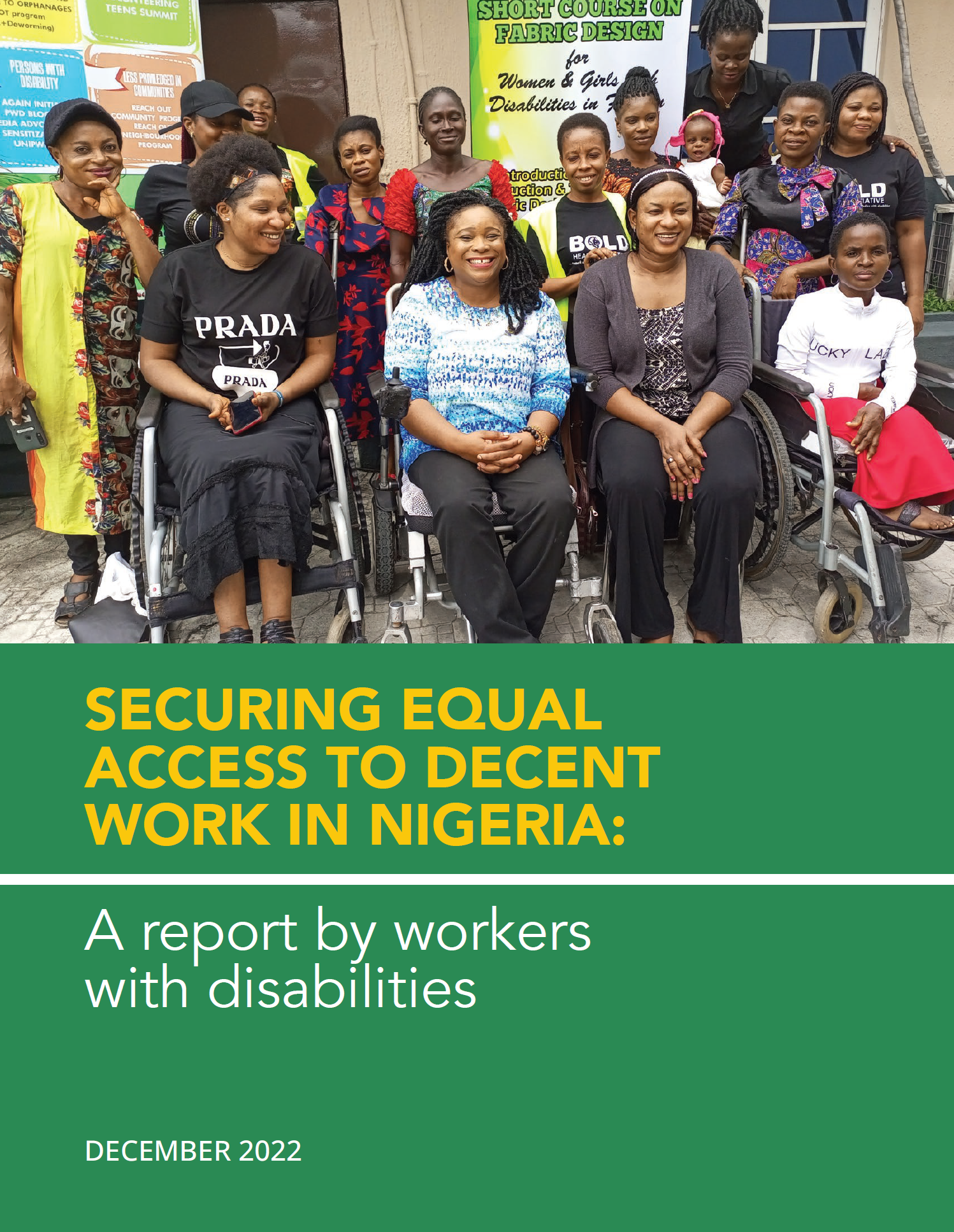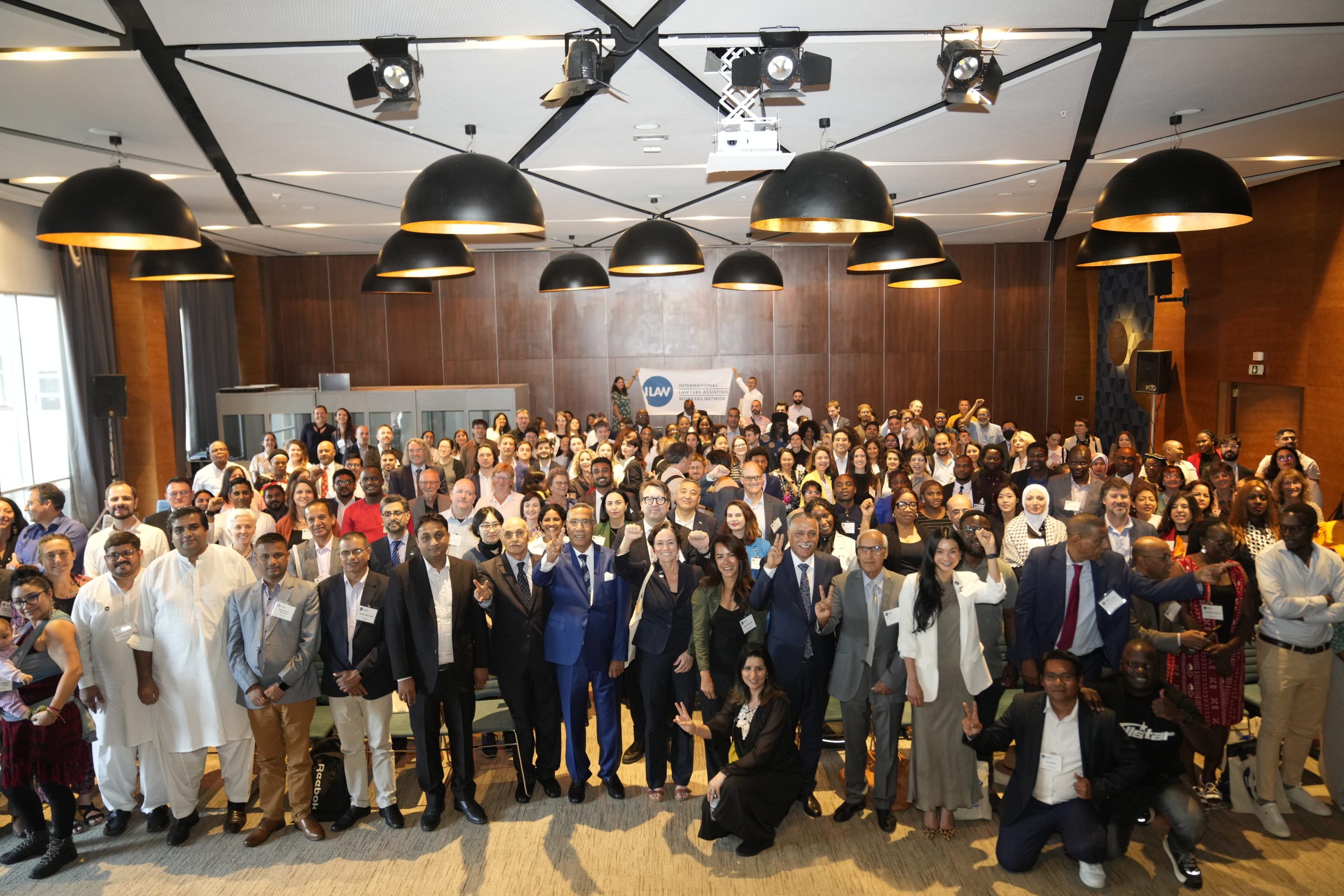More than 200 International Lawyers Assisting Workers Network (ILAW) members gathered in Casablanca, Morocco, October 9 to 11 at their 2024 Global Conference to share ideas and to collaborate on legal strategies to promote and defend worker rights. The Solidarity...
DRIVING CHANGE WITH A COMMUNITY OF WORKER RIGHTS LAWYERS
Through our Rule of Law Department, we partner with workers and unions around the world to ensure that all working people have their rights protected under domestic, regional and international law, have access to effective legal remedies at all levels if those rights are violated and have essential legal tools they need at the bargaining table.
Workers face significant challenges to overcoming systemic obstacles to exercise their rights, to access labor justice and to hold governments or corporations accountable in their workplaces and throughout their global supply chains.
By connecting workers and unions with lawyers from our International Lawyers Assisting Workers (ILAW) Network, we are able to harness both worker power and legal support where needed to create enabling environments and ensure workers are able to fully exercise their rights.
In South Africa, we supported constitutional litigation to ensure domestic workers have access to the national workers compensation fund. In Bangladesh, our lawyers supported workers in challenging the use of false criminal charges to dismiss and silence workers in garment factories. In the Americas, we supported efforts in regional human rights courts to hold governments accountable for anti-union violence.
THE ILAW NETWORK
The ILAW Network is a public service project led by our Rule of Law staff made up of more than 1,300 pro-worker lawyers in 96 countries, primarily from the Global South. It is the largest membership organization of worker and labor rights lawyers in the world.

The ILAW Network lawyers work together to develop creative solutions to promote workers’ rights globally—through campaigns, policy analysis, litigation and legislation.
From engaging with major fashion brands and suppliers to end gender-based violence and harassment in garment factories to suing major technology companies to secure labor rights on digital platforms, the ILAW Network holds governments and corporations accountable.
Work is driven with an explicit intersectional approach that incorporates three areas of legal tools:
STRATEGIC LITIGATION
Launched in 2022, the ILAW Network’s Strategic Litigation Fund makes modest grants to ILAW lawyer members to support impact litigation to defend legal principles and protect worker rights as human rights.
The Strategic Litigation Fund is the only dedicated financial resource for strategic litigation concerning workers’ rights in the world.
The ILAW Network has awarded 24 impact grants ranging from $3,000 to $20,000 driving change in Albania, Brazil, Ecuador, Eswatini, Ethiopia, Germany, India, Kazakhstan, Kenya, Nepal, Nigeria, Pakistan, Peru, South Africa, Switzerland, and Zimbabwe.
From challenging discriminatory exclusion of domestic workers from social protection in several African countries to seeking to enforce legislation against forced labor and human trafficking in Nepal to driving transnational supply chain litigation seeking to ensure accountability of a multi-national corporations, the Strategic Litigation Fund provides much-needed resources to push for long-term system change through legal reform.
Every donation, big or small, to the Strategic Litigation Fund can make a difference.
With just $1,500 we were able to send an investigative team of worker rights lawyers to conduct interviews with the families of victims’, indigenous communities and survivors of the Brumadinho dam collapse in Brazil where over 270 people died. The testimonies gathered and findings from the investigation were instrumental in driving the litigation to hold multinational corporations that certified the dam as safe accountable. As a result, the Brazilian company agreed to pay compensation (moral damages) in the amount of $7bn to the families of the victims.
Click here to make a donation.
MOVEMENT-BUILDING: EXCHANGE, KNOWLEDGE AND LEARNING
The following resources and opportunities to build power through regional and global convenings are at the heart of creating a movement alongside workers through a uniquely equipped legal community.
- The ILAW Network is made up of 1,300 members in each region across more than 95 countries, sharing information with each other in real time through a secure member-app.
- More than 2,500 (worker rights lawyers along with workers and union leaders) received targeted multi-lingual in-person training and webinars on a variety of topics, such as the right to strike, collective bargaining, technology and the impact on workers, and international strategies to prevent wage theft from migrant workers.
- The ILAW Network also offers the Future of Labor Law Database, an online resource to discuss and co-create model laws and policies intended to be worker-centric and inclusive, containing recommended labor law legislation with direct input from ILAW members.
- ILAW members are given opportunities to connect online and in-person through various events and activities to ensure that they have opportunities to build solidarity, community and learn from each other.
ADVOCACY, LEGAL RESEARCH AND LEGAL REFORM
- The ILAW Network has filed more than 15 amicus briefs since its inception in 2019 on important labor rights cases in Colombia, Costa Rica, Ecuador, Georgia, Mexico, Peru, Thailand, Uganda, the US and the Inter-American Court of Human Rights. The full list of amicus briefs can be found here. In several cases, the courts followed the reasoning set forth in the briefs that were filed.
- The ILAW Network has also supported (positive) or combatted (regressive) labor law reform in more than 20 countries through advocacy, and technical assistance informed by legal research.
- Through requests and discussions with its members, the ILAW Network conducts legal research on a variety of topics including digital platform workers, technology and labor rights, employment discrimination, workers in the informal economy, and more. All of which can be found here.
- The ILAW Network also publishes a multi-lingual biannual journal, the Global Labour Rights Reporter featuring articles from ILAW members on a variety of topics, including feminist labor law, global supply chain accountability and migrant workers.
Workers Defend Right to Strike at International Court of Justice
In a precedent-setting case before the International Court of Justice, the International Trade Union Confederation (ITUC) provided written comments last week in a legal dispute over the right to strike. The dispute, filed in 2023, is the first submitted by the United...
ILAW Network Report Seeks Solutions to Ending Discrimination
Millions of workers still face widespread discrimination in employment and at the workplace—even though 65 years ago, 175 countries adopted an international convention seeking equality of opportunity and treatment. “We still find that employers find very clever ways...

Rapport du Commissaire aux Compotes sur les Etats Financiers de L’Exercice Clos le 31 Decembre 2023
Read the full report here.

LOW PAY, NO SUPPORT: Sri Lanka Delivery Drivers Fight for Worker Rights
CLICK HERE TO READ THE FULL REPORT.

Heat Stress in the Cambodian Workplace
In Cambodia, workers health and safety and climate change are linked. This report details the results of surveys, interviews, and thermal monitoring conducted in the garment, delivery, and informal food sector that display the negative effect that heat has on workers,...

2023 Annual Report
In 2023, the Solidarity Center supported workers as they took on exploitative multinational companies and robot algorithms, demanded their governments tackle social ills and deliver on promises, and fought for justice in environments increasingly dangerous to those...

Securing Equal Access to Decent Work in Nigeria: A Report by Workers with Disabilities
A survey of more than 600 workers with disabilities in Nigeria conducted by the Trade Union Congress of Nigeria (TUC) Women Commission and the Solidarity Center in collaboration with Nigerian unions and disability rights organizations, finds that most workers...

2022 Annual Report
In 2022, the Solidarity Center marked a quarter century of supporting embattled workers, advocating and litigating for change, and celebrating worker rights advances in troubled times. As crackdowns on fundamental civil rights intensify around the world, workers and...




